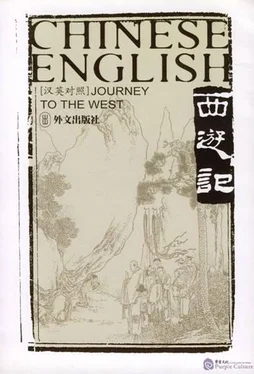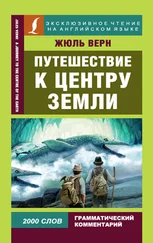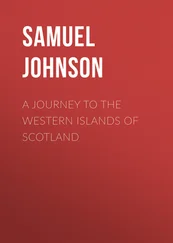Recognizing them, the Emperor asked, “Are you not the monk who gave us the cassock?”
“That's right,” replied the Bodhisattva.
“If you came here to listen to the preaching you should be satisfied with getting something to eat,” said Taizong. “Why did you start ranting at the Master of the Law, disturbing the scripture hall and interfering with our service to the Buddha?”
“That master of yours was only teaching the doctrine of the Little Vehicle, which will never send the dead up to Heaven,” replied the Bodhisattva. “I have the Three Stores of the Buddha's Law of the Great Vehicle, which can save the dead, deliver from suffering, and ensure that the body will live for ever without coming to harm.” Showing no signs of anger, Taizong earnestly asked where the Buddha's Law of the Great Vehicle was.
“It is in the Thunder Monastery in the land of India in the West, where our Buddha lives,” the Bodhisattva replied, “and it can untie the knots of all injustice and save the innocent from disaster.”
“Can you remember it?” the Emperor asked, and the Bodhisattva answered “Yes.” Taizong then gave orders that this Master of the Law was to be taken to the dais and invited to preach.
The Bodhisattva and Moksa flew up to the dais, then soared into the sky on magic clouds. She appeared in her own form as the deliverer from suffering, holding a twig of willow in a vase, and Moksa stood beside her as Huian, holding a stick and bristling with energy. The Tang Emperor was so happy that he bowed to Heaven, while his civil and military officials all fell to their knees and burned incense. Everyone in the temple-monks, nuns, clerics, lay people, scholars, workmen and merchants-all bowed down and prayed, “Good Bodhisattva, good Bodhisattva.” There is a description of her appearance:
The sacred radiance shines around her,
The holy light protects her Dharma body.
In the glory of the highest Heaven
Appears a female Immortal.
The Bodhisattva
Wore on her head
Marvellous pearl tassels
With golden clasps,
Set with turquoise,
And gleaming golden.
She wore on her body
A plain blue robe with flying phoenixes,
Pale-coloured,
Patterned with running water,
On which curled golden dragons.
Before her breast hung
A moon-bright,
Wind-dancing,
Pearl-encrusted,
Jade-set circlet full of fragrance.
Around her waist was
A skirt of embroidery and brocade from the Jade Pool
Made from the silk of ice-silkworms,
With golden seams,
That rode on coloured clouds.
Before her went
A white and yellow red-beaked parrot,
To fly across the Eastern Ocean,
And all over the world
In gratitude and duty.
The vase she held gave grace and salvation,
And in the vase was a sprig of
Weeping willow to sweep away the fog,
Scattering water on the heavens,
Cleansing all evil.
Rings of jade looped over brocade buttons
And her golden-lotus feet were concealed.
She was able to visit the three heavens,
For she was Guanyin, the rescuer from suffering.
Taizong was so entranced that he forgot all about his empire; the ministers and generals were so captivated that they forgot all about court etiquette; and the masses all intoned, “Glory be to the Bodhisattva Guanyin.” Taizong ordered that a skilled painter was to make a true likeness of the Bodhisattva, and no sooner had the words left his mouth than the brilliant and enlightened portrayer of gods and Immortals, Wu Daozi, was chosen. He was the man who later did the pictures of distinguished ministers in the Cloud-piercing Pavilion. Wielding his miraculous brush, he painted a true likeness on the spot. The Bodhisattva's magic cloud slowly faded into the distance, and a moment later the golden light could be seen no more. All that was visible was a note drifting down from the sky on which could be read the following brief address in verse:
“Greetings to the lord of the Great Tang.
In the West are miraculous scriptures.
Although the road is sixty thousand miles long,
The Great Vehicle will offer its help.
When these scriptures are brought back to your country
They will save devils and deliver the masses.
If anyone is willing to go for them,
His reward will be a golden body.”
When he had read these lines Taizong issued an order to the assembly of monks: “Suspend this service until we have sent someone to fetch the scriptures of the Great Vehicle, and then you shall once more strive sincerely to achieve good retribution.” The monks all obeyed his instructions. The Emperor then asked those present in the monastery, “Who is willing to accept our commission to go to the Western Heaven to visit the Buddha and fetch the scriptures?”
Before he had finished his question, the Master of the Law came forward, bowed low in greeting, and said, “Although I am lacking in ability, I would like to offer my humble efforts to fetch the true scriptures for Your Majesty and thus ensure the eternal security of your empire.” The Tang Emperor, who was overjoyed to hear this, went forward to raise him to his feet.
“Master,” he said, “if you are prepared to exert your loyalty and wisdom to the full, not fearing the length of the journey or the rivers and mountains you will have to cross, I shall make you my own sworn brother.” Xuanzang kowtowed to thank him. As the Tang Emperor was indeed a man of wisdom and virtue he went to a place before the Buddha in the monastery where he bowed to Xuanzang four times, calling him “younger brother” and “holy monk.” Xuanzang thanked him effusively.
“Your Majesty,” he said, “I have no virtue or talent that fits me for the sacred honour of being treated as your kinsman. On this journey I shall give my all and go straight to the Western Heaven. If I fail to reach there or to obtain the true scriptures, then I shall not return to this country even in death, and shall fall for eternity into Hell.” He burned incense in front of the Buddha to mark this vow. The happy Emperor ordered his chariot to take him back to the palace; later on an auspicious day would be chosen on which Xuanzang would be given a passport and set out. With that he returned and everyone dispersed.
Xuanzang went back to the Hongfu Monastery, where the many monks and his few personal disciples had already heard that he was going to fetch the scriptures. They came to ask if it was true that he had vowed to go to the Western Heaven. On being told by Xuanzang that it was indeed true, his pupils said, “Teacher, we have heard that the journey to the Western Heaven is a long one, and that there are many tigers, leopards, fiends, and demons on the way. We are afraid that you may lose you life and never come back.”
“I have sworn a great vow that I shall fall into Hell for eternity if I do not get the true scriptures,” replied Xuanzang. “Besides, as I have been so favored by His Majesty, I shall have to show my loyalty to the utmost if I am to repay the country for his honour. But it will be a journey into the unknown, and there is no saying what my fate will be. My pupils,” he went on to say, “two or three years after I set out, or it may be as much as six or seven, that pine tree inside the monastery gate will turn to the East, which will mean that I am coming back. If it does not, you can be sure that I will not return.” All his disciples committed his words most carefully to memory.
At court the next morning Taizong assembled his civil and military officials and wrote out the document Xuanzang would need to fetch the scriptures, stamping it with the imperial seal that gave the right to travel freely. When an imperial astrologer reported that this day was under an auspicious star for setting out on a long journey, the Tang Emperor was delighted. A eunuch official came in to report, “The Imperial Younger Brother, the Master of the Law, awaits a summons outside the palace doors.” Calling him into the throne hall, Taizang said, “Brother, today is a lucky one for starting on a journey, and here is the pass that will let you through the checkpoints. I am also giving you a golden bowl with which you may beg for food on your journey, in addition to choosing two experienced travelers to accompany you and presenting you with a horse to carry you on your long journey. You may now set out.” Xuanzang, who was very happy to hear this, thanked the Emperor and took the presents. He was now more eager than ever to be off. Taizong and a host of officials went by carriage to accompany him to the checkpoint. When they got there they found that the monks of the Hongfu Monastery and Xuanzang's own disciples were waiting outside with his summer and winter clothing. As soon as he saw this the Tang Emperor ordered that it be packed and horses be provided, then told an official to pour out some wine. Raising his cup he asked, “Brother, what is your courtesy name?”
Читать дальше









